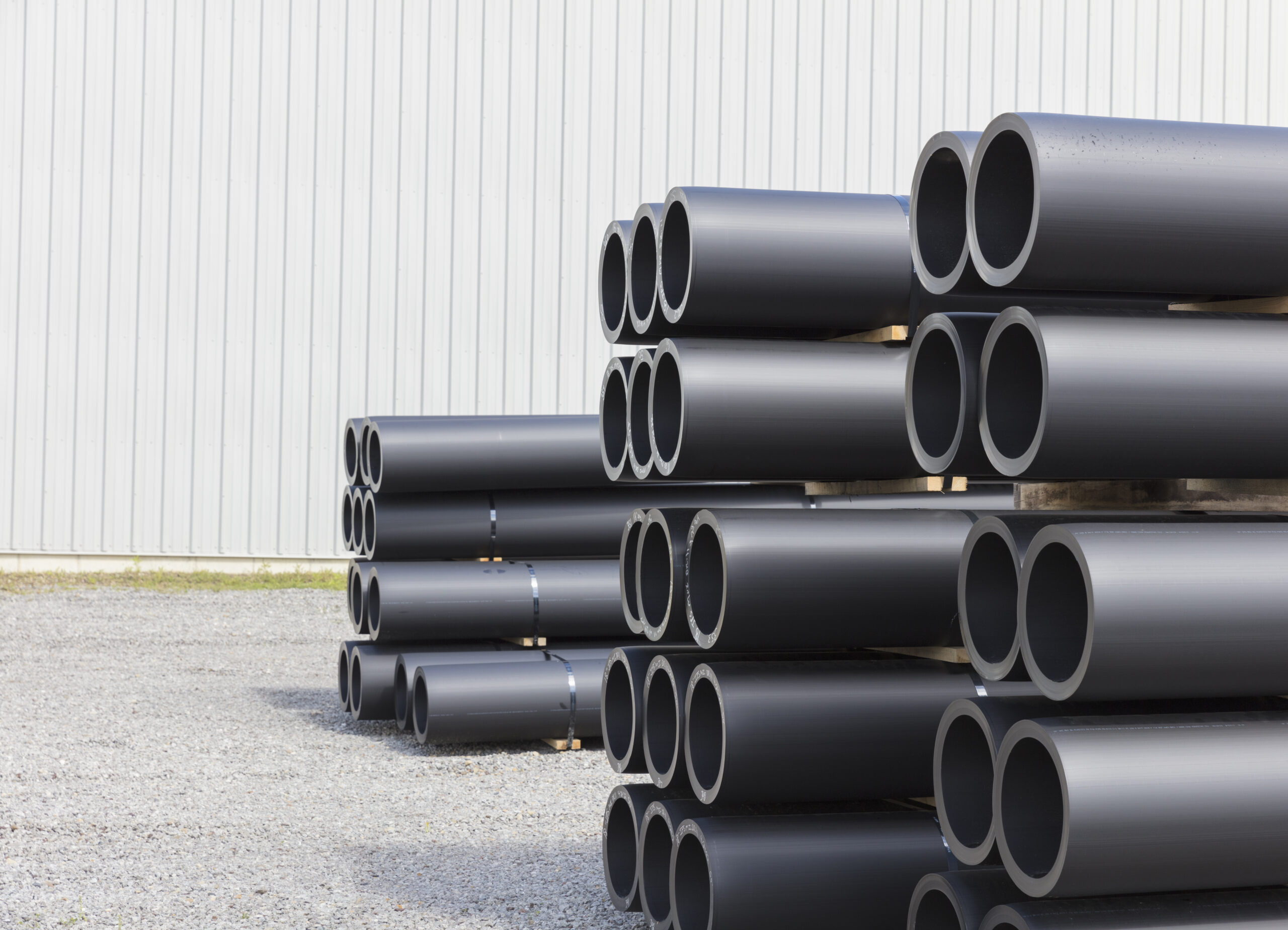Why Pipe Supplier American Plastics Midland Is the Trusted Partner for Contractors
Comprehending the Secret Conveniences of HDPE Pipe for Water and Wastewater Administration
Making use of HDPE pipe in water and wastewater management presents many advantages that warrant consideration. Its outstanding durability and long lifespan make it a recommended choice for several projects. Additionally, the material's resistance to corrosion and chemical damages enhances its reliability in various atmospheres. Nonetheless, the benefits extend beyond simply longevity and resistance. Discovering its cost-effectiveness and ecological impact exposes a lot more engaging reasons for its widespread fostering in modern framework
Extraordinary Sturdiness and Longevity

HDPE pipe stands apart for its remarkable toughness and durability, making it a favored option in water monitoring systems. Created from high-density polyethylene, these pipes can withstand substantial pressure and anxiety, ensuring trusted performance in time. Their durable nature allows them to endure extreme ecological conditions, including temperature level variations and dirt activities, which can cause various other materials to fail.
The lifespan of HDPE pipelines often surpasses half a century, giving a cost-efficient remedy for towns and markets alike. Additionally, the material's light-weight properties simplify setup, minimizing labor expenses and durations. This sturdiness minimizes the need for constant repair services or replacements, even more improving its economic allure.
In water management applications, the dependability of HDPE pipelines indicates fewer disturbances and improved solution continuity, making them integral to lasting facilities development. The mix of resilience and long life strengthens HDPE's function as a foundation in effective water administration solutions.

Resistance to Deterioration and Chemical Damage
While many materials catch corrosion and chemical damages in time, HDPE pipelines show exceptional resistance, making them optimal for various water management applications. This durability stems from the molecular structure of high-density polyethylene, which is naturally non-reactive and does not rust like steels or degrade from direct exposure to rough chemicals. Therefore, HDPE is extremely effective in atmospheres with hostile materials, such as wastewater systems that might include acids, bases, and organic solvents.
In addition, HDPE pipes can endure environmental variables such as dirt acidity and saline conditions, additionally improving their suitability for varied applications (Pipe Supplier American Plastics Midland). Their capability to maintain architectural honesty gradually decreases the risk of leaks and failures, which is crucial in guaranteeing the security and reliability of water circulation and wastewater management systems. Consequently, the resistance to corrosion and chemical damages considerably adds to the general effectiveness and durability of HDPE piping remedies
Cost-Effectiveness and Economic Advantages
When taking into consideration the economic ramifications of water management systems, the cost-effectiveness of HDPE pipelines becomes obvious. These pipes supply lower installment and maintenance costs compared to conventional products like steel or concrete. Their lightweight nature streamlines transport and installment, resulting in minimized labor expenditures. In addition, HDPE pipelines show a long life-span, usually going beyond half a century, which converts to fewer substitutes and lasting cost savings.
Moreover, the resistance of HDPE to corrosion and chemical damages decreases the need for expensive fixings and replacements. The pipelines additionally support reliable water circulation, reducing power costs connected with pumping systems. By mitigating leakages and water loss, HDPE pipelines add to considerable economic benefits for municipalities and sectors alike. In general, the preliminary investment in HDPE piping can yield substantial financial returns over the life-span of the water management system, making it a sensible option for lasting infrastructure growth.
Environmental Sustainability and Reduced Influence

Versatility and Flexibility in Setup
Due to their one-of-a-kind properties, HDPE pipes use remarkable versatility and versatility in setup, making them suitable for a large range of applications. Their lightweight nature allows for easier handling and transportation, reducing labor expenses and installation time. HDPE pipelines can be curved and shaped to fit different terrains and job demands, which is especially advantageous in challenging settings.
Additionally, their resistance to rust and chemical damage enables pvc male adapter setup in diverse settings without the demand for specialized protective coverings. The ability to fuse joints develops a continual, leak-free system, improving the total stability and dependability of the installment. HDPE's versatility additionally fits ground motion, lowering the danger of damages in locations susceptible to moving dirt. In general, these attributes make HDPE pipelines not just functional but also a recommended option for water and wastewater monitoring systems.
Regularly Asked Inquiries
How Does HDPE Pipe Contrast to PVC in Water Management Applications?
HDPE pipe supplies remarkable flexibility, resistance to corrosion, and durability contrasted to PVC. Its lighter weight promotes easier setup, while its long life expectancy reduces substitute prices, making HDPE a recommended selection in water administration applications.
What Is the Life Expectancy of HDPE Piping Under Regular Problems?
Under common conditions, HDPE pipelines can have a life expectancy ranging from 50 to 100 years. Their resilience and resistance to deterioration add to their lasting efficiency in different applications, making them a trusted option for infrastructure.
Are HDPE Pipeline Recyclable After Their Life Span?
Yes, HDPE pipes are recyclable after their service life. hdpe pipe in stock Midland TX. They can be processed and repurposed right into new products, substantially reducing ecological effect and promoting sustainability within the market, making them an environment-friendly option for piping remedies
What Is the Installation Refine for HDPE Piping?
The installment process for HDPE pipelines entails site prep work, trenching, pipe blend or mechanical joining, backfilling, and stress screening. Appropriate strategies ensure a durable and reliable system for transferring water and wastewater effectively.
Can HDPE Pipeline Be Used for Both Safe And Clean and Non-Potable Water Solutions?
Yes, HDPE pipelines can be utilized for both drinkable and non-potable water systems. Their flexibility, longevity, and resistance to deterioration make them ideal for different applications, ensuring secure and efficient useful source transport of water in different contexts.